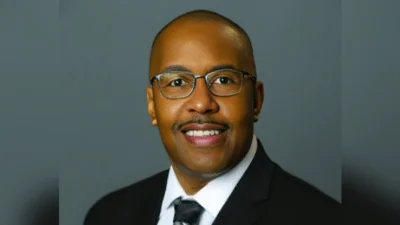Brad Finstad U.S. House of Representatives from Minnesota's 1st district | Official U.S. House Headshot
Brad Finstad U.S. House of Representatives from Minnesota's 1st district | Official U.S. House Headshot
Congressman Brad Finstad, who represents Minnesota’s 1st district and serves as chairman of the House Agriculture Subcommittee on Nutrition and Foreign Agriculture, has led a group of colleagues in addressing concerns about Minnesota’s administration of the Supplemental Nutrition Assistance Program (SNAP). In a letter sent to Governor Tim Walz, Finstad and other members of Congress cited issues with program integrity, administrative decisions that have burdened counties, and misuse of taxpayer funds intended for vulnerable families.
Finstad said: “SNAP has the power to transform lives when implemented with integrity. These reforms give Minnesota every opportunity to succeed, but Governor Walz must step up and make the right choices for the people of our state.”
The letter follows reforms included in H.R. 1, which was signed into law earlier this year. The legislation requires states to engage able-bodied adults without dependents in work or training opportunities, control administrative costs, and reduce payment error rates below six percent or share in benefit costs.
According to the letter, Minnesota grouped regions together to secure waivers from federal work requirements. This action allegedly denied thousands of able-bodied recipients access to work or volunteer opportunities meant to support self-sufficiency through SNAP.
Minnesota also chose not to require households applying for SNAP benefits to disclose certain assets such as cash savings or secondary properties. The lawmakers argue this policy has allowed individuals not intended by Congress to receive benefits.
In 2024 alone, Minnesota reportedly made nearly $77 million in improper SNAP payments due to overpayments and underpayments. The state’s payment error rate is currently 8.98 percent—higher than neighboring states and its own historical performance.
The members wrote: “Congress will no longer overlook states that mismanage taxpayer funds at the expense of vulnerable families. The choice now lies with you: continue on a path of mismanagement or change course and be part of the solution.”
The letter further notes that in May 2024 there were more than 170,000 job openings in Minnesota while unemployment stood at just 3.3 percent—below the national average—and yet broad exemptions from work requirements were requested across multiple counties and reservation areas.
Federal SNAP spending has increased from $60 billion in 2019 to over $100 billion in 2024—a rise approaching 70 percent. Lawmakers say corrective measures are needed for sustainability.
Under H.R. 1, Minnesota will be required to provide employment-related opportunities for able-bodied participants through programs like SNAP Employment and Training; bring administrative expenses under control; and reduce its payment error rate below six percent or contribute financially toward benefit costs.
Lawmakers expressed concern about county resources being stretched thin since Minnesota is one of nine states requiring counties to cover administrative costs associated with SNAP. They criticized recent state spending decisions given what they described as a squandered $20 billion surplus rather than supporting rural Minnesotans.
They concluded: “If your administration cannot make improvements that Minnesota has previously demonstrated are possible, it will be clear that budget priorities, not capacity, are at fault. Congress will not overlook continued mismanagement of taxpayer resources at the expense of families in need.”
Brad Finstad has served as U.S. Representative for Minnesota’s 1st District since replacing Jim Hagedorn in 2022 (https://finstad.house.gov/about). He previously served in the Minnesota House of Representatives from 2003-2009 (https://finstad.house.gov/about). Born in New Ulm in 1976, Finstad continues to reside there (https://finstad.house.gov/about) after graduating from the University of Minnesota with a Bachelor’s degree (https://finstad.house.gov/about).
###



 Alerts Sign-up
Alerts Sign-up